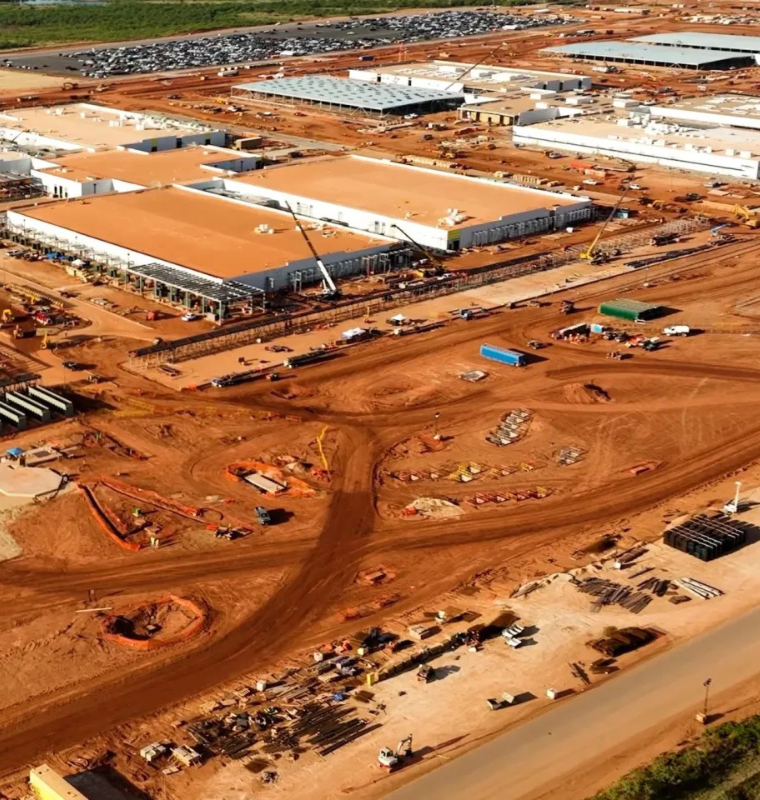OpenAI Closes $6.6 Billion Share Sale at $500 Billion Valuation
OpenAI Closes $6.6 Billion Share Sale at $500 Billion Valuation
By
Calder Monroe
Last updated:
October 2, 2025
First Published:
October 2, 2025

Sam Altman, chief executive officer of OpenAI Inc., during a media tour of the Stargate AI data center in Abilene, Texas, US, on Tuesday, Sept. 23, 2025. | Kyle Grillot | Bloomberg | Getty Images
OpenAI’s Record-Breaking Secondary Share Sale
OpenAI has finalized a $6.6 billion secondary share sale, giving current and former employees the opportunity to cash out stock at a record-setting $500 billion valuation. While the company had authorized up to $10.3 billion for the transaction, only about two-thirds of that amount ultimately traded hands. Insiders, however, view this not as a shortfall but as a strong vote of confidence — many employees chose to hold onto their shares, believing in OpenAI’s long-term growth potential.
This sale places OpenAI firmly ahead of other private market leaders, surpassing SpaceX’s $456 billion valuation and making it the world’s most valuable privately held company.
A Strategic Alternative to Going Public
The offer was extended in early September to eligible employees who had held shares for more than two years. This marks OpenAI’s second major tender offer in less than a year, following a $1.5 billion deal with SoftBank in late 2023.
By turning to secondary share sales instead of rushing toward an IPO, OpenAI is able to reward early employees and retain top talent while maintaining its independence as a private company. This strategy is increasingly common among the world’s most valuable startups — companies like Stripe, Databricks, and SpaceX have used similar moves to provide liquidity to staff and early investors without the volatility of public markets.
Investor Interest and Valuation Surge
The $500 billion valuation represents a dramatic leap from earlier this year, when OpenAI was valued at around $300 billion in a similar transaction. The rapid growth underscores surging global interest in artificial intelligence, especially as OpenAI’s flagship product, ChatGPT, continues to reshape industries ranging from education and healthcare to finance and marketing.
Key investors in the deal include Thrive Capital, SoftBank, Dragoneer Investment Group, Abu Dhabi’s MGX, and T. Rowe Price — a group that highlights both Silicon Valley’s and global markets’ deep commitment to AI innovation.
Investor enthusiasm remains high despite the steep valuation, with OpenAI standing out as one of the very few startups able to attract multibillion-dollar buy-in from top-tier global funds.
The Battle for AI Talent
The timing of the share sale is no coincidence. Competition for artificial intelligence researchers and engineers has intensified dramatically. Meta, for example, has reportedly offered nine-figure compensation packages to lure top AI researchers away from rivals. Google, Anthropic, and Amazon are also aggressively investing in research labs and infrastructure to secure a lead in the AI race.
By offering employees liquidity through secondary sales, OpenAI not only incentivizes loyalty but also ensures that its workforce remains motivated and competitive in a market where talent is scarce and salaries are skyrocketing.
A Defining Moment in Private Markets
OpenAI’s move solidifies its dominance in the private tech sector, raising important questions about how long the company will remain private. For now, the strategy allows OpenAI to avoid the scrutiny of quarterly earnings reports while continuing to attract billions in investment.
The decision also highlights a broader shift in private markets: more startups are choosing to delay IPOs, relying instead on secondary share sales as a way to balance employee liquidity with investor demand. With OpenAI now valued at half a trillion dollars, the company has set a new benchmark — not only for AI but for the private market as a whole.
Popular articles
Subscribe to unlock premium content
Why Consumers Buy Limited-Edition Fashion and Beauty Products

How K-Beauty Changed the Global Skincare Industry and Consumer Expectations

How Streetwear Became a Billion-Dollar Industry From Niche to Mainstream

Why Consumers Buy Limited-Edition Fashion and Beauty Products

How K-Beauty Changed the Global Skincare Industry and Consumer Expectations

Why Consumers Buy Limited-Edition Fashion and Beauty Products









